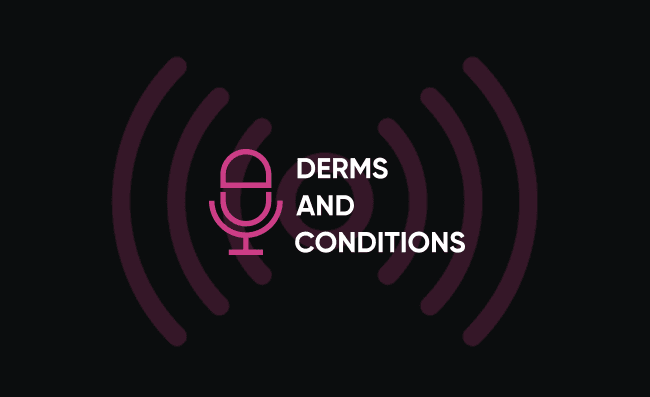Derms and Conditions Podcast Episode 96:
A Real-World Discussion of Patch Testing in Atopic Patients
Featuring David Cotter, MD | Release Date: November 21, 2024
In this episode of Derms and Conditions, host James Del Rosso, DO, welcomes David Cotter, MD, a dermatologist in clinical practice and assistant clinical professor at the University of Nevada Las Vegas School of Medicine, to discuss the integral role of patch testing in managing atopic dermatitis (AD) and allergic contact dermatitis (ACD), providing practical insights on incorporating patch testing into practice and differentiating between these often-overlapping conditions.
They begin with Dr Cotter highlighting the importance of a holistic approach when evaluating patients with AD and ACD. A thorough history and physical examination, combined with a detailed understanding of allergen exposure, are essential for tailoring patch testing to the patient’s specific needs. He notes that AD and ACD frequently coexist, and identifying an allergen component is particularly valuable in cases of treatment-resistant AD or when new patterns, such as hand or facial dermatitis, emerge.
For patients already on systemic therapies like biologics and JAK inhibitors, interpreting patch test results requires careful consideration. While biologics may control aspects of ACD, breakthrough dermatitis often signals clinically relevant allergens. Patch testing can be performed without discontinuing current biologic or JAK inhibitor therapy, though a washout period and repeat testing may sometimes be needed.
Dr Cotter shares that patch testing can significantly improve outcomes, especially for patients who prefer allergen avoidance over additional systemic therapies. Tools like allergen-detection apps can empower patients to avoid triggers in their daily lives. When avoidance is not feasible, oral JAK inhibitors approved for AD can also help manage both AD and ACD symptoms in many cases.
Tune in to the full episode to explore the value of patch testing in modern dermatology and get actionable strategies to improve care for patients with complex dermatitis cases.
